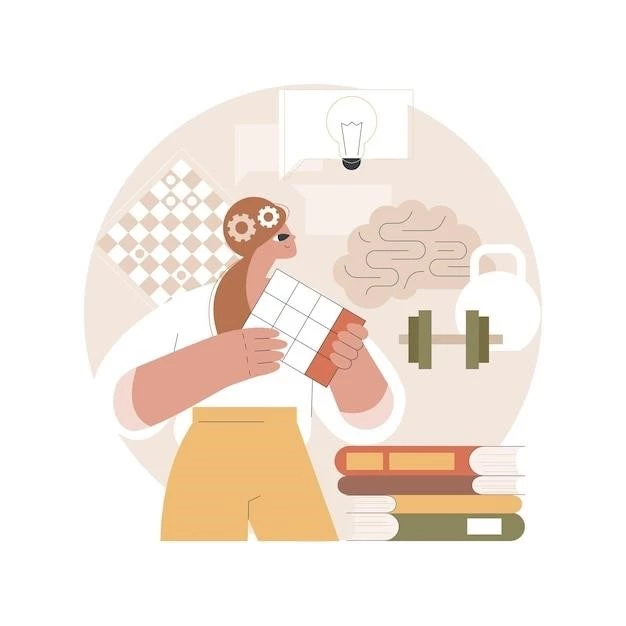Understanding ADHD and its Impact
Understanding the causes, symptoms, diagnosis, and treatment options for ADHD is crucial. Explore the impact of ADHD on academic performance, adults, and children. Learn about behavioral therapy, medication management, and coping strategies for parents.
Cause of Attention Deficit Hyperactivity Disorder (ADHD)
ADHD’s exact cause is unknown, but factors like genetics, brain injury, exposure to toxins during pregnancy, premature birth, and low birth weight may contribute. Research suggests a link between dopamine, norepinephrine, and serotonin imbalances in the brain and ADHD. Additionally, environmental factors like smoking during pregnancy, lead exposure, and certain prenatal infections may play a role. Understanding these potential causes can help individuals and families navigate the diagnosis and treatment of ADHD effectively.
Symptoms and Diagnosis of ADHD
ADHD symptoms vary but typically include inattention, hyperactivity, and impulsivity. Children may have trouble focusing, following instructions, sitting still, and waiting their turn. Adults may struggle with organization, time management, and maintaining relationships. Diagnosis involves a comprehensive evaluation by healthcare professionals, including a medical history review, physical exam, and gathering information from parents, teachers, and caregivers. Psychological testing and observation of the individual’s behavior can aid in confirming the diagnosis. Early detection and intervention are key in managing ADHD effectively.
Treatment Options for ADHD
When it comes to managing ADHD, various treatment options are available. These may include behavioral therapy, medication, educational interventions, and lifestyle modifications. Behavioral therapy focuses on teaching coping strategies, improving organization skills, and addressing behavior patterns. Medications like stimulants, non-stimulants, or antidepressants can also be prescribed based on individual needs. Educational support, such as special accommodations at school, can enhance learning experiences. Lifestyle changes like regular exercise, a balanced diet, and sufficient sleep can complement treatment strategies. Consulting with healthcare providers to create a comprehensive treatment plan tailored to the individual’s needs is essential for effectively managing ADHD.
Impact of ADHD on Academic Performance
ADHD can significantly impact academic performance. Children with ADHD may struggle to concentrate in class, complete assignments, and follow instructions, leading to academic underachievement. They may also exhibit disruptive behavior that affects their learning and interactions with peers. Adults with ADHD may find it challenging to manage time, stay organized, and meet work deadlines, affecting their professional success. To address these academic challenges, interventions such as individualized education plans, tutoring, organizational strategies, and behavioral interventions can be beneficial. Collaborating with teachers, counselors, and healthcare providers to support the academic needs of individuals with ADHD is vital in promoting academic success.
ADHD in Adults⁚ Signs and Management
ADHD can persist into adulthood, presenting unique challenges. Common signs in adults include poor time management, forgetfulness, impulsivity, and disorganization. These symptoms can impact work performance, relationships, and overall quality of life. Management strategies for adult ADHD involve a combination of medication, therapy, and lifestyle modifications. Medications like stimulants or non-stimulants may be prescribed to improve focus and attention. Therapy, such as cognitive-behavioral therapy, can help manage symptoms and develop coping skills. Implementing strategies like creating routines, using organizational tools, and seeking support from loved ones can enhance daily functioning. Seeking guidance from healthcare providers can aid in effectively managing ADHD in adults.
Behavioral Therapy for Children with ADHD

Behavioral therapy is a vital component in managing ADHD in children. This type of therapy focuses on teaching positive behaviors, coping strategies, and social skills. Techniques like praise, rewards, and clear instructions can help reinforce desired behaviors. Behavior plans tailored to the child’s needs can enhance focus, organization, and self-control. Additionally, parent training programs can educate caregivers on effective behavior management strategies at home. Collaborating with teachers and mental health professionals can ensure a consistent approach to support the child’s behavioral development. Implementing behavioral therapy in conjunction with other interventions can improve the overall well-being and functioning of children with ADHD.
Medication Management for ADHD
Medication is often a key component in managing ADHD symptoms. Stimulants like methylphenidate and amphetamines are commonly prescribed to improve focus and impulse control. Non-stimulant medications such as atomoxetine and guanfacine may be recommended for those who do not respond well to stimulants. It is crucial to follow the prescribed dosage and monitor for any side effects. Regular follow-up appointments with healthcare providers are important to assess the medication’s effectiveness and make any necessary adjustments. Combining medication with therapy and lifestyle modifications can optimize treatment outcomes. Consulting with a healthcare professional can help determine the most suitable medication management approach for addressing ADHD symptoms effectively.
Coping Strategies for Parents of Children with ADHD
Parenting a child with ADHD can be challenging, but there are effective coping strategies to support both the child and the family. Establishing routines, setting clear expectations, and providing positive reinforcement can help manage behavior. Educating oneself about ADHD, seeking support from other parents or support groups, and practicing self-care are essential. Effective communication with teachers and healthcare providers can ensure a collaborative approach to managing the child’s needs. Implementing strategies like using visual schedules, breaking tasks into manageable steps, and encouraging physical activity can benefit the child. Remember, patience, consistency, and understanding are key in navigating the journey of parenting a child with ADHD.
